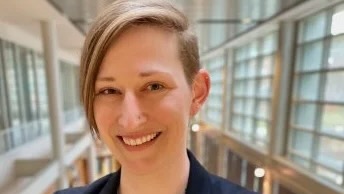HDQM Colloquium - Rachel Romeo

HDQM Colloquium - Rachel Romeo
Note: RSVP required because of limited capacity!
If you previously RSVP'd but know or decide that you actually CAN'T attend, please let us know on this form. If you were unable to RSVP, but would like to be added to a list and added if possible, please fill in your information here.
Rachel Romeo, Assistant Professor, HDQM
Co-Development of Language and Executive Functioning in Early Childhood: Experiential and Brain Mechanisms
Abstract: How do children’s everyday language experiences shape their cognitive development? And how do developing brain systems adapt to and support this process? In this talk, I will present my recent program of research investigating the co-development of language and executive functioning (EF) in early childhood, and the experiential and neurobiological mechanisms that underlie this relationship. First, drawing on data from a large, 10-year longitudinal cohort, I demonstrate that children’s early language skills scaffold the growth of EF, particularly in the early preschool years, and that these processes help explain socioeconomic variation in EF development. Extending this work, I examine how three different dimensions of caregiver language input—interactive, linguistic, and conceptual—uniquely and differentially contribute to children’s language and EF trajectories. Finally, I highlight ongoing NIH-funded research that uses neuroimaging (fMRI and fNIRS) to test how cascading frontotemporal brain networks support the intertwined development of language and EF during this critical period. Throughout, I examine how certain contextual moderators—including socioeconomic adversity, multilingualism, family stress, and parent-child relationships—my help explain variation both within and between children. Together, this work contributes to a mechanistic understanding of how children’s day-to-day experiences shape cascading systems of neurocognitive development, with implications for promoting resilient developmental trajectories and supporting children’s school readiness.
- 12:00 - 12:30 - lunch (provided, but bring your own drink)
- 12:30 - 1:30 - talk
- 1:30 - 2:00 - Q&A

